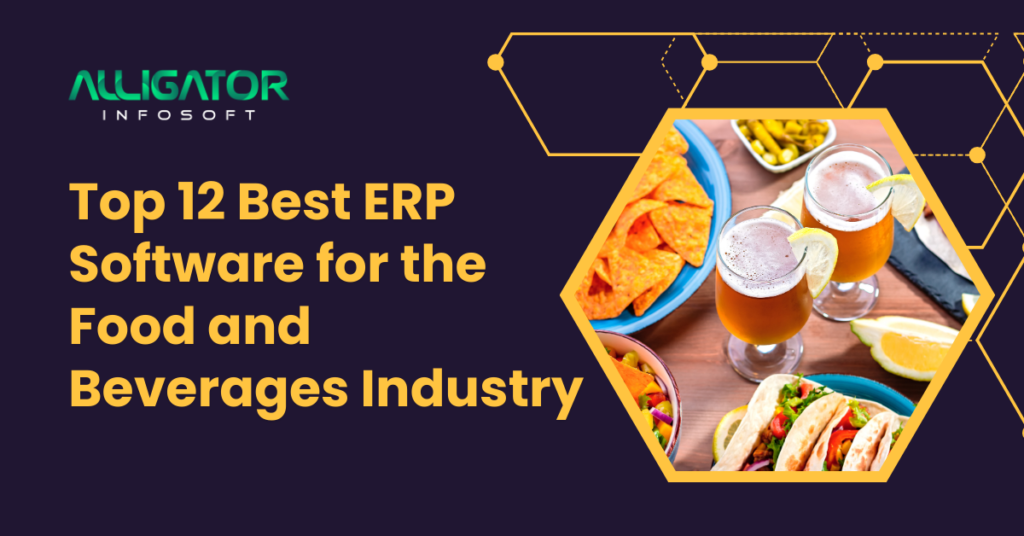Why is Odoo ERP Essential for the Modern Automotive Industry?
The automotive industry is changing quickly, driven by new technology and growing consumer demands for innovation, quality, and sustainability. Whether you’re a manufacturer, dealer, or service provider, managing operations can be challenging. This is where Odoo ERP (Enterprise Resource Planning) comes in. In this article, we’ll look at how Odoo ERP can transform the automotive industry, make operations more efficient, and help businesses stay competitive. By bringing together important business processes—like manufacturing, sales, and after-sales service—Odoo is becoming an essential tool for automotive companies aiming to improve their efficiency and grow. 1. Streamlining Operations with Odoo ERP in Automotive Manufacturing In automotive manufacturing, precision and efficiency are paramount. Odoo ERP plays a key role in streamlining production processes and optimizing workflows, ensuring that every step of the manufacturing cycle runs smoothly. Production Planning & Scheduling: Odoo allows manufacturers to plan and schedule production efficiently. It integrates production orders with inventory management and supply chain workflows, reducing delays and minimizing waste. Inventory Management: Automotive businesses deal with vast inventories of parts and raw materials. Odoo’s real-time inventory tracking helps manufacturers avoid overstocking or stockouts, ensuring parts are available just when needed. By integrating production, procurement, and inventory in a unified system, Odoo ERP helps manufacturers reduce costs, improve lead times, and maintain higher quality standards. 2. Enhancing Inventory Management and Supply Chain Visibility For the automotive industry, managing inventory and tracking the movement of parts is crucial to meet tight deadlines and ensure smooth operations. Real-Time Tracking: Odoo ERP offers real-time tracking of parts and products across multiple locations. This allows automotive businesses to monitor stock levels and track shipments, reducing the chances of errors or delays. Automated Replenishment: Odoo automates the reordering process, ensuring that businesses never run out of crucial parts. This is especially useful for companies that rely on just-in-time (JIT) manufacturing or are dealing with fluctuating demand. The transparency Odoo ERP offers across the supply chain means that stakeholders—whether in sales, manufacturing, or logistics—can make informed decisions based on real-time data, reducing bottlenecks and increasing productivity. 3. Odoo ERP’s Role in Automotive Sales and CRM In an industry as customer-driven as automotive, building strong relationships and maintaining an efficient sales pipeline is crucial. Odoo ERP’s Customer Relationship Management (CRM) capabilities are tailor-made for the automotive sector. Customer Tracking & Lead Management: Odoo helps businesses track customer interactions, manage leads, and automate follow-ups. Whether it’s a car dealership or an auto parts supplier, businesses can manage customer queries and convert them into sales seamlessly. Sales Order Management: Odoo integrates sales orders directly with inventory and supply chain modules, ensuring accurate pricing, stock availability, and timely deliveries. This reduces errors and improves customer satisfaction. By centralizing sales processes, from lead generation to order fulfillment, Odoo empowers automotive businesses to enhance customer relationships, drive revenue, and optimize sales workflows. 4. Optimizing Financial Management in the Automotive Industry Managing finances in the automotive industry can be complex, especially for large manufacturers with multiple departments. Odoo ERP provides comprehensive financial management tools that help streamline accounting, budgeting, and reporting. Real-Time Financial Reporting: Odoo’s integrated financial tools allow for instant access to financial statements. Whether you need a balance sheet, profit and loss report, or cash flow analysis, everything is accessible in real time. Automated Billing & Invoicing: Odoo automates the billing and invoicing process, reducing manual errors and improving cash flow. For businesses dealing with large numbers of transactions, this feature ensures timely payments and minimizes delays. With Odoo ERP, automotive businesses can gain better visibility into their financial health, manage costs more effectively, and optimize their bottom line. 5. Improving Quality Control and Compliance with Odoo ERP Maintaining high quality standards is non-negotiable in the automotive industry. Odoo ERP offers tools to ensure that all parts and processes meet stringent quality and safety regulations. Automated Quality Inspections: Odoo ERP supports quality checks at every stage of production. From incoming parts to finished vehicles, quality inspections can be logged and tracked to ensure compliance with ISO standards or other industry certifications. Regulatory Compliance: Odoo helps businesses stay on top of regulations and manage compliance documentation efficiently. Whether it’s environmental laws, safety regulations, or product certifications, Odoo ensures that everything is recorded and easily accessible. By integrating quality control into every part of the process, Odoo ERP helps automotive businesses maintain high standards and avoid costly compliance issues. 6. Data-Driven Decision Making in the Automotive Industry In the automotive sector, having access to the right data at the right time can make all the difference. Odoo ERP’s powerful analytics and reporting tools provide valuable insights to help businesses make informed decisions. Key Performance Indicators (KPIs): Odoo allows automotive businesses to track critical KPIs such as production efficiency, inventory turnover, and customer satisfaction. These metrics provide valuable insights into how well the business is performing. Predictive Analytics: Odoo’s analytics also allows businesses to forecast trends, identify potential supply chain disruptions, and plan for the future with predictive capabilities. With data-backed insights, automotive companies can improve decision-making, optimize operations, and stay ahead of the competition. 7. Odoo ERP for After-Sales Service Management After-sales service is a key differentiator for automotive businesses. Odoo ERP can help businesses manage customer service requests, warranties, repairs, and parts replacements more effectively. Service Request Management: Odoo allows businesses to track customer service requests and assign them to the appropriate teams. This ensures that repair processes are efficient and customers are kept informed. Parts Replacement & Warranty Management: With Odoo, businesses can easily manage parts replacement and warranty claims, improving customer satisfaction and reducing service delays. By managing after-sales service more effectively, automotive companies can build long-term customer loyalty and increase repeat business. 8. Customization and Scalability of Odoo ERP for the Automotive Industry One of the standout features of Odoo is its customizability. Whether you’re a small auto repair shop or a large-scale vehicle manufacturer, Odoo ERP can be tailored to fit your specific needs. Industry-Specific Customization: Odoo allows businesses to add modules specific to the automotive industry, such











